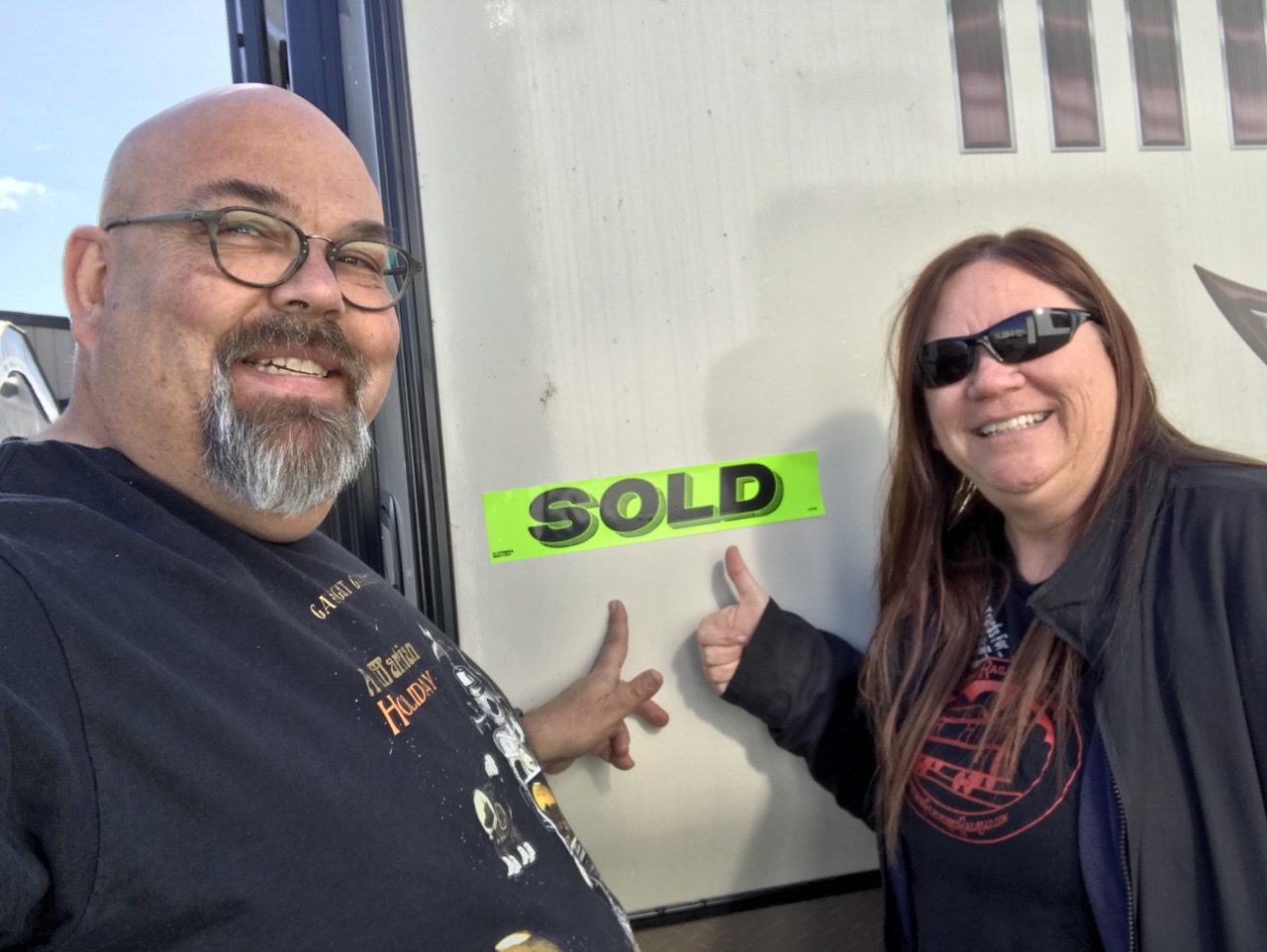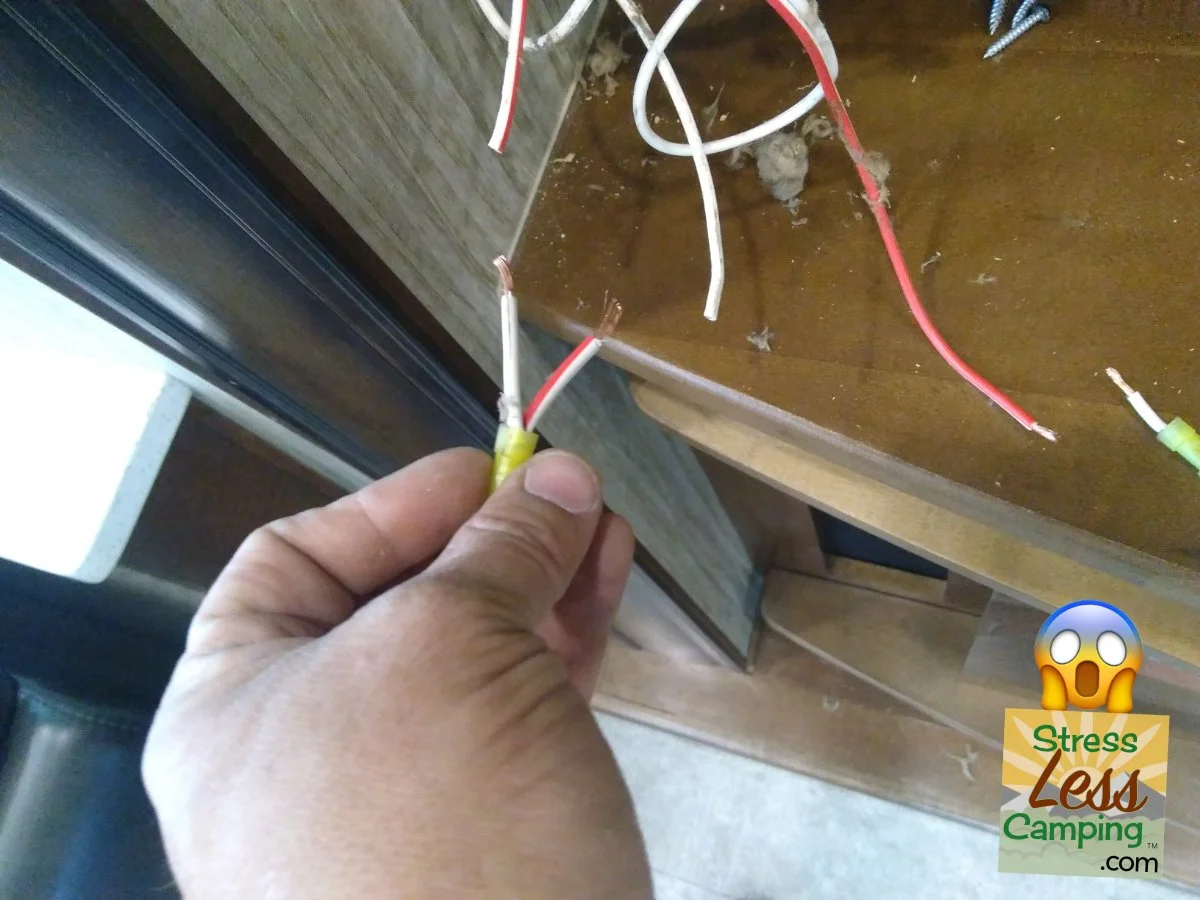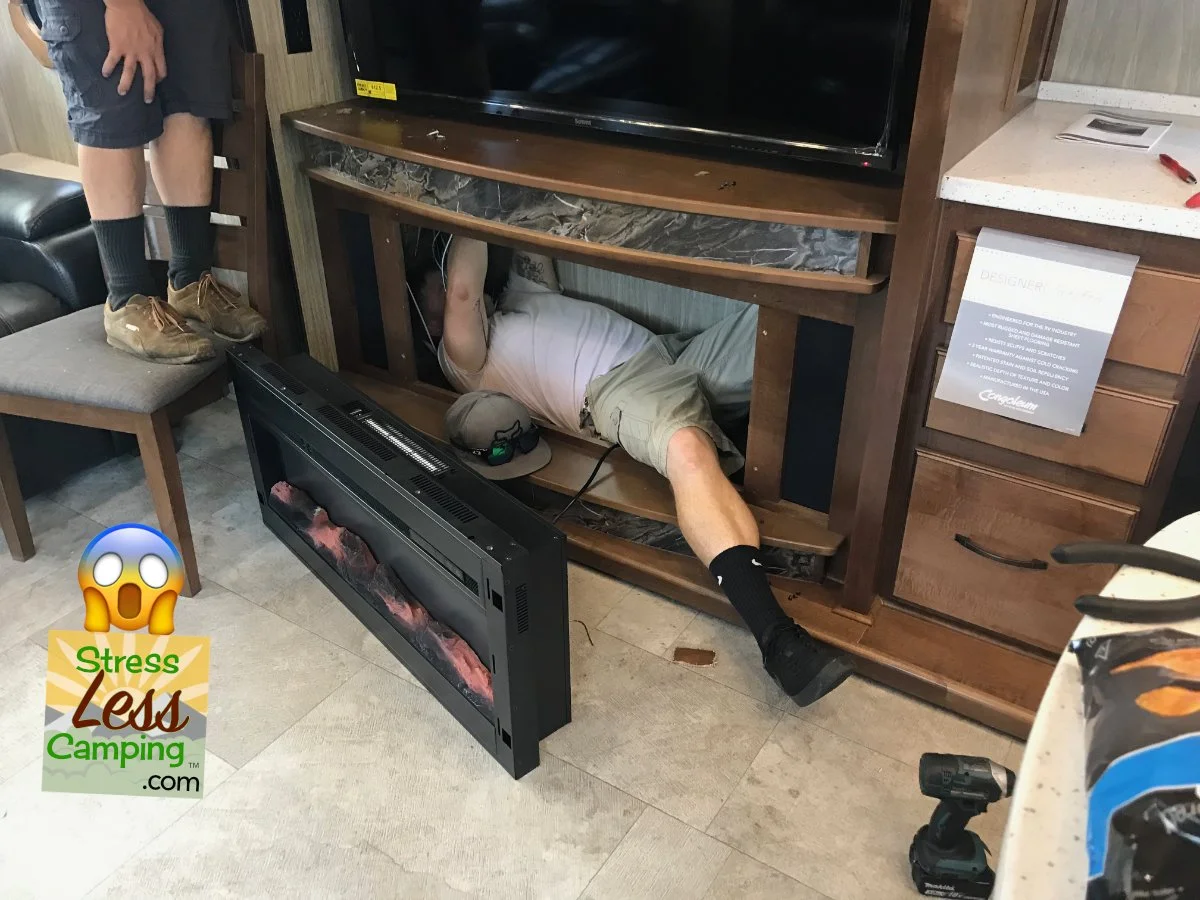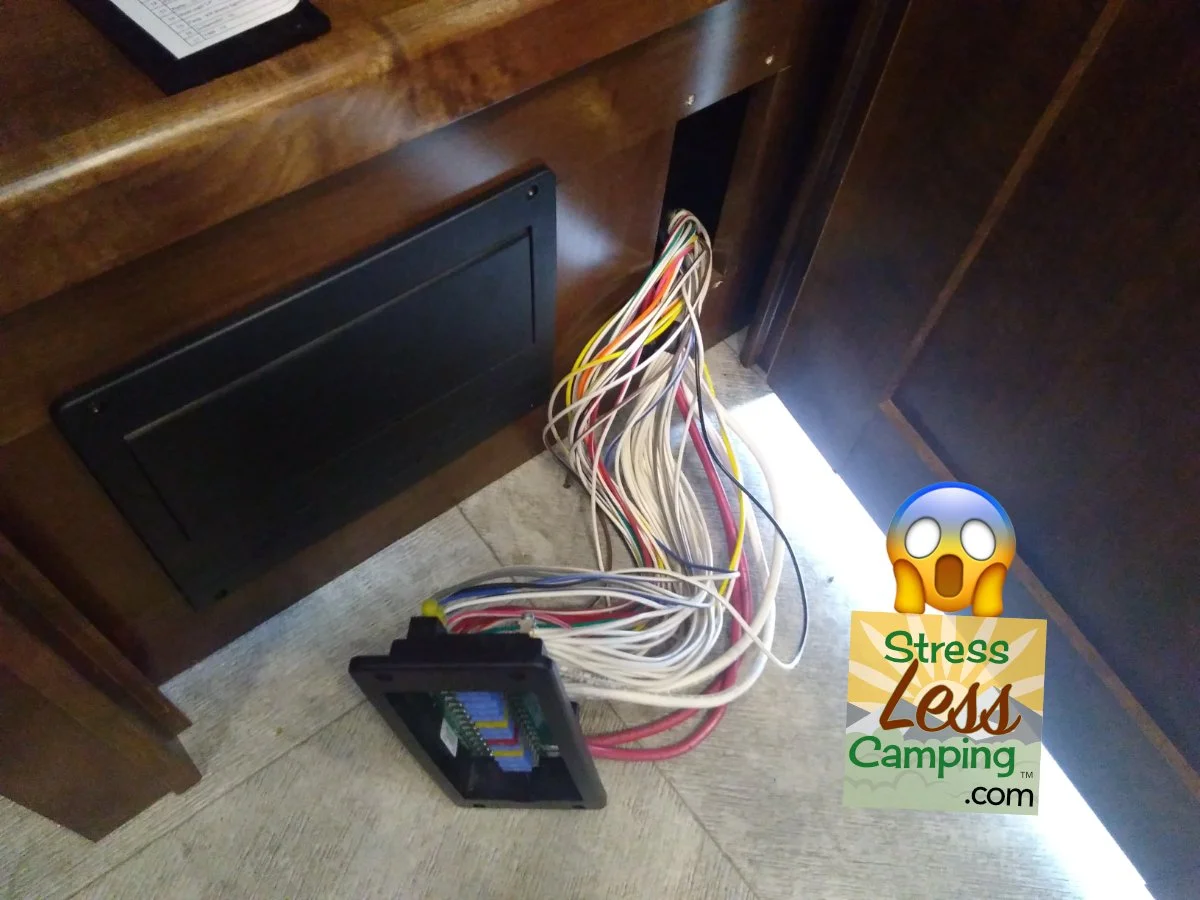Can an RV dealer not honor your warranty?
Why won't my local RV dealer honor my RV warranty?
Is your local RV dealer required to work on your RV even if you didn’t buy it there? Several RV owners reported that the dealership closest to them refuses to work on their RV because they didn’t buy it at that dealership. Is this legitimate? This is a question a lot of people ask and they’re surprised to learn that their local RV dealership won’t work on their RV even if that dealership sells the same brand. Why is this?
Understanding RV dealerships
When you go to a car dealership, that dealership is a franchise. That means that the franchisor, which is the vehicle manufacturer, can make demands of the dealership and they have to comply as part of their franchise agreement.
This can include things like signage, branding, having brochure racks in the lobby and also details about the service department. A vehicle manufacturer can demand that a franchise dealer have a specific number of certified service technicians and can also demand that some, or all, of those technicians go through the manufacturer’s service training.
Nowadays with customer ratings being more important than ever it can also be the case that vehicle manufacturers require a vehicle dealership to maintain a certain rating with the customers as well.
Service training
Most vehicle manufacturers also have training and certification programs. We’ve all seen signs that read something like “factory authorized service” or “factory trained service” at a car dealership. I don’t believe I’ve ever seen this at an RV dealership and, right now, it’s not likely that we will, either.
There are very few RV manufacturers that even have training programs. Further, some RV manufacturers don’t consistently build the products they sell us.
How are RVs built
RVs are built in different ways, but one of the things that’s common is that there is a general idea of how an RV is going to be made, and it’s up to the workers on the line to flesh out those details.
For example, there are RV factories where there are huge spools of wire at the point on the line that the electrical is being installed. When they need to wire in a light fixture, a line worker will just pull enough wire to complete the task. Today they may have red wire with a white stripe then, after that spool is done, they may switch to blue wire with a yellow stripe.
So your RV might be wired with very different colors of wire from the one that followed it down the assembly line. That may also be somewhat true of plumbing as well. While some RV manufacturers are really consistent about how they wire and plumb their products, this isn’t universally true in the RV space.
In fact, one of the more shocking things I’ve seen on an RV assembly line is workers hand-cutting holes in floors, ceilings and even side walls for things like windows and doors, vents, and plumbing. It just boggles my mind.
When a vehicle is being built you can bet that the manufacturers very closely monitor every aspect of that build from the wiring to the number of screws being used. Much of that assembly is done by machines that repeat the same process over and over, day in and day out. RVs are almost all built by hand and while they do use a lot of the same components, there are still a huge number of pieces that are built by human beings on the assembly line.
I recently talked with one marketing manager who said his RV company had almost 500 floor plans. This is just one of the many brands from a major name in the RV space who also owns many, many other brands. Imagine going into a car dealership and seeing 500 different choices of Chevrolets or Toyotas?
The dizzying diversity of floor plans including dozens of almost identical layouts that are built by differing brands held by a large company means there’s not a lot of planning or design that goes into a floor plan. For example, Thor’s Jayco division might build almost the same floor plan as Thor’s K-Z or MPG divisions, but the three divisions are completely independent of one another.
Of course there are measurements and drawings of the units but those planning documents don’t necessarily include where the wiring, plumbing, or other things go. This lack of wiring diagrams and specific plumbing schematics mean that the tech at your local RV dealership might be spending as much time figuring out how a light or stereo is wired and what color wires are used in this RV as they are spending to actually repair an issue.
In fact, one of the issues our techs constantly complained about was the lack of available wiring and plumbing diagrams.
Cost of warranty
A lot of the time spent on the warranty repair of an RV may be the tech just figuring out the wiring and plumbing or other aspects of how that RV was built before they really even start the repair.
When an RV dealership has a warranty claim typically they figure out what’s wrong, take as many photos as possible of the offending pieces, and then submit the claim to the manufacturer. The manufacturer then evaluates whether the claim has merit and approves or denies the claim.
Part of that process is the dealership requesting reimbursement for time spent on making the repair. Most of the warranty repairs typically have an hourly time estimate assigned to them by the RV manufacturer. For example, if the tech has to replace a stereo, the manufacturer might include 20 minutes of time to do so.
Let’s say that you have a speaker that’s not working. The tech first spends time fiddling with the stereo to make sure that it’s set correctly, and then more time removing the speaker and testing the wires that lead up to it. Overall the tech may have spent an hour or more just figuring out that the speaker was bad.
The warranty guidelines from the manufacturer may only budget 15 minutes to replace a speaker. That means that the dealership could end-up just “eating” all but 15 minutes of the tech’s time to facilitate that repair.
This is just one example - when I was facilitating warranty claims at a dealership there were times where it would take hours for the tech to even figure out what the issue was and then additional time removing the broken component.
Furthermore, not only did we pay the tech who facilitated the repair itself, the dealership also had to pay me to manage all these warranty claims. There was absolutely no accommodation in the reimbursement schedules of RV warranty departments for my time or for the time of whoever is administering the warranties at a dealership.
After we got the claim approved, we would have to order the new component and the tech would then spend time putting that new component in. In the mean time sometimes we’d have to store the owner’s RV while we were waiting for parts to arrive.
This was one thing in the days when parts were readily available but as I write this, many parts are on severe back order so it can take weeks or even months for some parts to arrive at the dealership, and that’s assuming that the repair is even authorized by the manufacturer.
It’s not worth it
So the bottom line on all of this is that warranty service at a dealership isn’t a profit center at all. Many dealerships only do the warranty service for customers who purchased their RVs there simply because it’s such a money losing proposition.
The shortage of RV technicians only compounds the problem. Your local dealership might only be able to find enough qualified technicians to barely cover the warranty claims from customers who purchased their RVs at the dealership. It also doesn’t help that many dealerships don’t pay their technicians well and they could go across the street and work flipping hamburgers for the same wage and have fewer frustrations.
Many times I had customers shop us and spend time with our sales staff, who were very well trained and educated, only to ultimately purchase their RV at a wholesale dealer a few hundred miles away. Now not only did we lose that sale, that customer also took time from the sales staff. Later they would return wanting us to do warranty work, which is typically done at a loss.
In this circumstance, which was common, we had no obligation to the customer to perform warranty work on their RV. Furthermore, our techs were so busy servicing the customers who did buy from us there just wasn’t time to service the RVs from people who did not buy from us. So we were within our rights to refuse to do warranty work on RVs that weren’t purchased from us.
But that’s not always the case.
What about being a good neighbor
There were times when someone was traveling and had an issue that would force them to go back home if it weren’t repaired while they were on their journey. We took in a number of these people just so they could enjoy the remainder of their getaway.
Our practice was also to help folks who had moved into the area and discovered an issue with their RV. In fact there was such a housing shortage where the dealership I worked for was located, many traveling medical professionals and educators actually lived in their RVs because there weren’t enough houses available.
We also got a decent number of folks who simply took the time of our sales staff and then went a few hundred miles away to an RV discounter and bought from them. The funny thing is, we would have happily matched their pricing if they had given us the opportunity.
What can you do?
If you find yourself in the position that a local dealership won’t do warranty work on your RV, there are actually things you can do.
Knowing that there’s such a shortage of RV technicians and service people, some RV manufacturers are now authorizing independent service professionals to perform warranty work. You might contact the manufacturer of your RV and ask them where the closest RV service places are.
There are also occasions where an RV manufacturer may authorize a mobile RV technician to perform the warranty work, although this isn’t always the case as mobile technicians often charge a significant fee just to show-up at the door. You might work out with your RV’s manufacturer to pay for the cost of the technician to show-up and then they reimburse that technician, or you, for the actual cost of the job that needs to be done.
Final thoughts
Lastly, there is something we all need to do. If you know someone who is relatively handy or has a good work ethic you might advocate to them to look at a career in the RV industry. It may shock some of you to know that there are hundreds and hundreds of thousands of RVs being built every year but there are no more RV technicians out there today than were there ten years ago!
Being an RV technician is a great opportunity and is a job that does pay well. Learning the trade can happen at a local dealership. There are also training schools where someone can become certified in the trade and increase their earning power.
An RV technician is a job that brings joy to customers because you’re saving people’s vacations and there is absolutely no shortage of work. Opportunities exist at dealerships and other RV service centers. And there’s also plenty of work for someone if they want to strike out on their own.
I have often said that if someone chooses this career path and gets certified and trained in the repairs needed, they can buy a van and put a magnetic sign on it and have so much work just by driving through an RV park that they’ll want to take that magnetic sign off now and then just to get a break.









